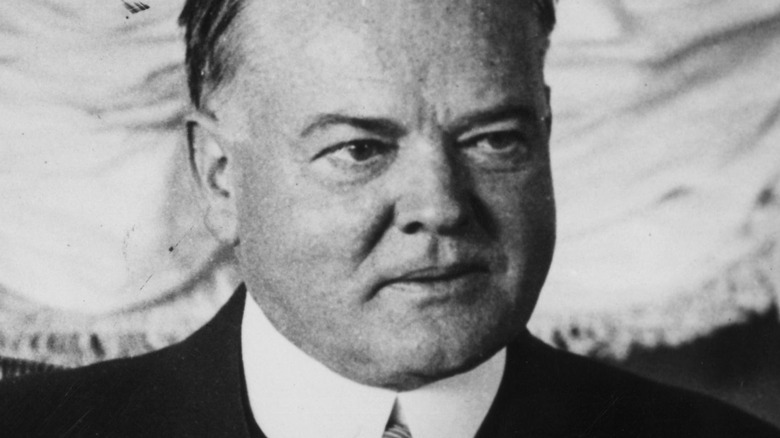How Herbert Hoover Pioneered Meatless Mondays
Whether for health reasons, to help the planet, or even to save money, going meatless on Mondays is much more than a fad — it's a lifestyle that many people around the world have adopted. While the idea of meatless Mondays has made headlines in recent years and spurred the writing of numerous cookbooks and articles, the origin of swapping meat for other foods goes back decades.
The recent resurgence of the idea of abstaining from meat one day a week began in 2003 by The Monday Campaigns founder Sid Lerner, along with the Johns Hopkins Center for a Livable Future. The idea behind the campaign is that when people eat more plant-based foods, they live a healthier life and reduce their carbon footprint. Just some of the possible health benefits of reducing meat consumption, according to Monday Campaigns, include gut health, heart health, and reducing the risk of type 2 diabetes.
Inspire Clean Energy wants people to get behind Meatless Mondays to lessen the meat industry's impact on Earth. The company notes that the adverse effects of meat production include methane gas created by livestock, chemical fertilizers used on crops, and the destruction of trees for agricultural development. When Americans were first encouraged to go meatless one day a week about a century ago by Herbert Hoover, it wasn't for health or environmental reasons. Instead, it was something more political.
A homegrown effort
During World War I, average citizens were asked to do their part to help the war effort. A big part of that was to make some sacrifices regarding how they ate to help feed American soldiers fighting abroad and the United States' wartime allies whose farmland and residents were devastated by the ongoing fighting, reports PBS. Then-President Woodrow Wilson created the Food Administration and asked future president Herbert Hoover to manage it.
One of the first efforts by the Food Administration was to call upon Americans to participate in Meatless Tuesdays and Wheatless Wednesdays to reduce how much meat, fat, sugar, and wheat were consumed, per PBS. Under the oversight of Hoover, the Food Administration created recipes that were meatless and wheatless that Americans could make at home, such as almond paste cannoli and "War Bread" made from potato flour, per Atlas Obscura. Americans widely embraced the effort. In November 1917, more than 11 million Americans pledged to participate in Meatless Tuesdays and Wheatless Wednesdays (via PBS). The measure also called upon citizens to waste less, with the Food Administration providing such tips as to use sour milk for baking and to can fruits and vegetables. Americans ate 15% less food during a 12-month period between 1918 and 1919, reports Atlas Obscura.
Whether for health reasons, environmental reasons, or to help others during wartime, Americans have proven they are open to a day without meat.

